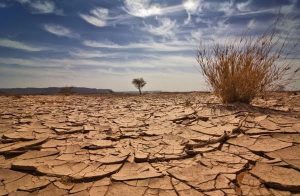By Daramfon Bassey and Ifeoma Malo
Nigeria’s energy dilemma is well documented. Despite numerous interventions and investments by successive governments, the national electricity generation capacity remains insufficient to meet the energy needs of its growing population. Not surprisingly, attempts to find a sustainable solution to this lingering problem has led to an increased focus on diversifying the energy mix of the country, most especially through the adoption of renewable energy sources.
This interest has been illustrated through the Vision 30:30:30 policy which states the Federal Government’s aim to generate 30% of the total national power from renewable energy sources by 2030, the Rural Electrification Agency’s target of deploying 10,000 mini-grids by 2023 as well as the development and adoption of several renewable energy related policies and regulations such as the National Renewable Energy and Energy Efficiency Policy (2015), the National Renewable Energy Action Plan, the National Energy Efficiency Action Plan, the Mini-Grid Regulations to mention a few.
The renewable energy sector, despite being at a nascent stage, has witnessed increased flow of investments in the form of equity, debt, and grant financing, the presence of more foreign and indigenous companies, increased research and data collection, and the accelerated deployment and adoption of renewable energy solutions and projects. These developments have given rise to the need for thousands of technically skilled workers who will design, build, install, maintain and operate these renewable energy systems as well as non-technically skilled workers that will play critical supporting roles along the renewable energy value chain.
According to the International Renewable Energy Agency (IRENA), the Off-grid renewable energy value chain is projected to create over 4 million jobs globally within the next ten (10) years. In Nigeria, based on current trends, it is estimated that the sector could create over 70,000 direct formal and informal jobs by 2023. Presently, renewable energy companies and training institutes are taking steps to ensure that Nigerians are equipped and trained to take advantage of the jobs that will be created by this emerging industry. The Renewable Energy Technology Training Institute (RETTI) provides theoretical and practical training on renewable energy systems, Also, Blue Camel Energy and Asteven have set up renewable energy training academies in Lagos and Kaduna respectively.
In spite of these efforts, a major gap still remains – the significant disconnection between the renewable energy and academic ecosystem. Nigeria is home to several public-owned and private-owned tertiary institutions, however, majority of students in these institutions are unaware of the trends and career opportunities of the growing indigenous renewable energy ecosystem and the increasing utilization of this technology to drive rural energy access in the country.
It is for this reason, that Clean Technology Hub under the “Promoting Citizens Access to Off-Grid Solutions in Nigeria” project supported by the Open Society Initiative for West Africa (OSIWA) hosted a two-day renewable energy training for technical and non-technical students of Usman Dan Fodio University, Sokoto State, and the Federal University of Petroleum Resources, Delta State.
These trainings were aimed at increasing: the students’ knowledge of clean energy trends at the global, African, and national levels, the number of technically skilled manpower for the renewable energy industry, and the interest of students of non-technical courses in the renewable energy industry. The topics covered include the energy access status globally, in Africa and Nigeria; the job market for technical and non-technical skills across the value chain of the off-grid renewable energy sector, the entrepreneurial opportunities in the renewable energy sector, and renewable energy governance in Nigeria. The training also consisted of exhibitions by private renewable energy companies such as Solar Sister, Asteven, Oolu Solar, d.light amongst others. Through these trainings, several students have become solar entrepreneurs and distributors and have undergone further technical trainings.
However, a lot more work still needs to be done to educate and train students in higher learning institutions across the country, as well as mainstream renewable energy into the curriculum of engineering colleges in Nigerian Universities. This can be achieved by carrying out the following: building the technical capacity of these institutions through increased technical and non-technical training, provisions of world-standard facilities, equipment and tools; increased sensitization of top universities officials on the enormous benefits and potentials of renewable energy in solving the country’s energy access conundrum and job creation; and the creation of a renewable energy internship program for students of these institutions.
These actions will go a long way to ensure that Tertiary Institutions in Nigeria are strengthened to drive renewable energy human capital development in the country to aid the acceleration of energy access in unserved and underserved communities, the reduction of unemployment, and the effective implementation of the Nigerian Local Content regulation.
*Daramfon Bassey is the Deputy Manager – Project Delivery, Clean Technology Hub
*Ifeoma Malo is the Cofounder/CEO of Clean Technology Hub.






1 thought on “The Role of Tertiary Institutions in Nigeria’s Renewable Energy Human Capital Development”
Nigeria’s energy challenges have gone from dilemma to “trilemma” as the country continues to struggle to achieve energy availability, affordability, and accessibility. It’s a trilemma confronting 200 million people!
Comments are closed.